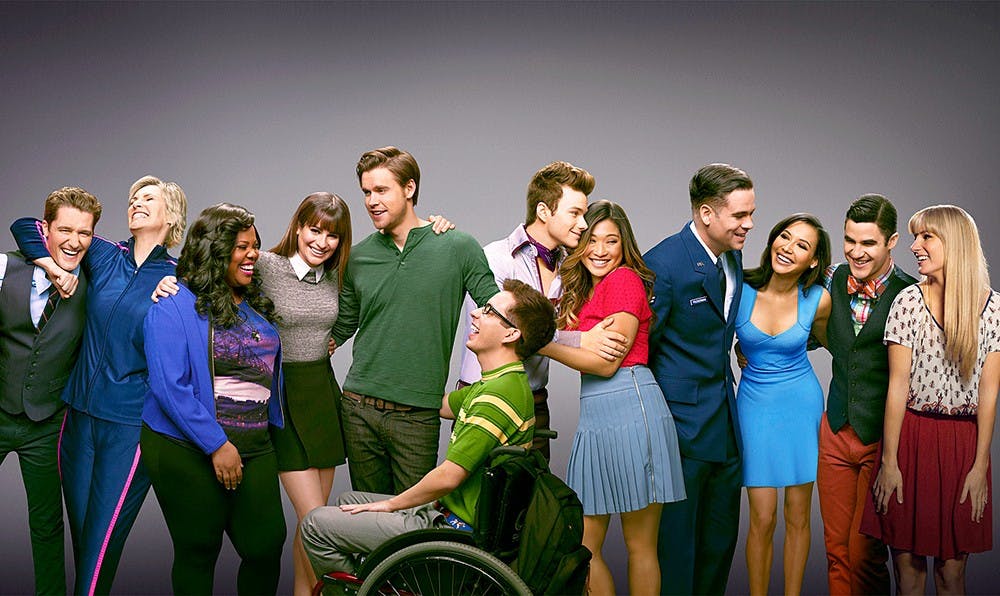Warning: This review contains spoilers.
Fox’s high school musical dramedy, which was a brief but intense phenomenon six years ago, finished its episodic run to a fractional audience Friday with two back-to-back episodes, “2009” and “Dreams Come True.” “2009” was an hour-long flashback detailing the personal journeys that led to the club’s creation while “Dreams Come True” was a flash-forward, where everyone gets what they want and then some.
Is the two-part “Glee” finale worth watching, though? That depends on what you’re looking for. “Glee” has transformed so much throughout the years, and each of the show’s changes is present in the final episodes making it a satisfying end but devoid of any sense.
“2009” wasn’t very substantial or interesting, plot-wise, but it was hugely nostalgic, especially when it came to handling the late Cory Monteith’s Finn Hudson. In particular, the end of the episode made me feel something, which is something I haven’t said about “Glee” in a long time.
The second episode, “Dreams Come True,” on the other hand, was as hyperbolic as “Glee’s” most recent years. Sometimes the exaggerated elements made for entertaining television. Jane Lynch has always been pretty incredible as Sue Sylvester and watching her sing ABBA’s “The Winner Takes it All” to Will Schuester was something that I didn’t know I wanted until it happened. Conversely, the total lack of conflict and the absurd level of success every character achieves (Mercedes opens for Beyonce’s world tour! McKinley becomes an arts school run by Mr. Schuester!) are as boring to watch as the pro-arts preaching that pads out the episode.
Looking at these two episodes, it’s tough to pin down “Glee’s” ultimate legacy — should it be remembered for what it was in the beginning, a fascinating underdog story, or the campy melodrama that it became? As I watched “Dreams Come True” two musical numbers stuck out to me. The first is an original song, written by Darren Criss and sung by Lea Michele, called “This Time,” in which Rachel Berry sings as she walks around an empty McKinley. It was simple and beautiful. The other is the final song of the show which features every cast member, major or minor, singing in the newly-named Finn Hudson Auditorium.
Hearing these two songs, I realized that “Glee” should be remembered for the heart that it wore on its sleeve. Both “2009” and “Dreams Come True” are full of flaws and devoid of conflict, but I could not help but watch them fondly. Music is better than words alone to convey emotion, and while “Glee’s” finale might have fumbled everything else, the music was enough.







